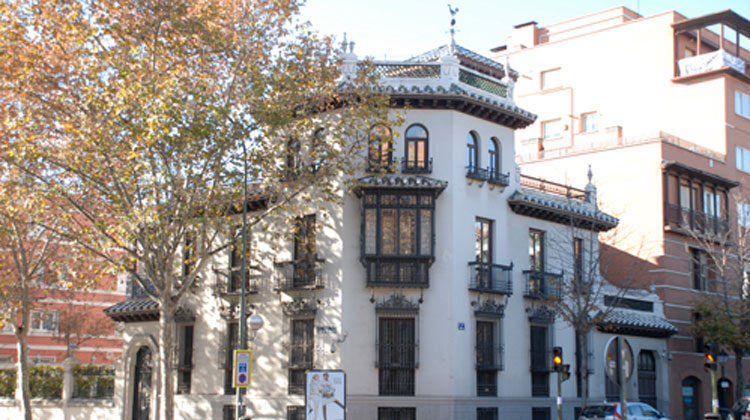The Diplomat
The South African Nobel Prize for Literature (naturalized Australian) John Maxwell Coetzee delivered yesterday his legacy in the Caja de las Letras of the Instituto Cervantes, which makes him the first living author awarded with the most prestigious literary prize in the world to enter the vault of the institution.
John Maxwell Coetzee (born Cape Town in 1940, naturalized Australian in 2006 and Nobel laureate in 2003) has been publishing since 2018 first in Spanish before publishing in English, his mother tongue, a personal decision he justifies as “a gesture” for his “distancing himself from a language whose worldview I do not believe in” and for his rejection of “global imperialist language.”
The event was organized jointly with the Prado Museum, where the writer inaugurated the cycle of artistic residencies Escribir el Prado, a joint initiative with the Loewe Foundation. Coetzee was accompanied by the director of the Institute, Luis García Montero; the president of the Prado Museum, Javier Solana; Andrés Úbeda, deputy director of Conservation and Research at the Prado Museum; and Valerie Miles, editor of Granta magazine in Spanish, where the text Coetzee will write about his experience at the Prado will be published.
“I am delighted to associate my name with that of Miguel de Cervantes,” Coetzee said during the event. “When the Prado Museum invited me to spend a month in Madrid, I did not imagine that I would end my visit in the vault of a bank, surrounded by the memories of great writers of the Spanish tradition,” he jokingly commented.
“My presence here is an accident. I do not belong, except in a certain spiritual sense, to the Spanish tradition and I do not write in Spanish, but the management of Instituto Cervantes has generously offered to keep a memento of me and I am delighted to accept the offer,” he declared. “I accepted the invitation, because in a more indirect way it allows me to associate my name with that of Miguel de Cervantes, father and mother of all novelists and the writer I most revere. Thank you all for this honor,” he concluded.
Precisely, the legacy deposited yesterday by Coetzee in the Caja de las Letras includes, as he himself informed, “a manuscript of the dialogue between María Dimópulos (his translator) and myself, which can be opened on the day of my death”. This deposit will become part of the Patrimonial Library of the Instituto Cervantes.
For his part, García Montero recalled that Coetzee decided years ago that his books should be published in Spanish rather than English because of his rejection – in the writer’s own words – of the “global imperialist language.” “This critical awareness of the idea of a global South, in which the Northern hemisphere decides what should be read in the world, led Coetzee to use an unrooted English, not attached to any linguistic territory of the language,” he continued.
García Montero also welcomed former minister Javier Solana to “his home”, whom he thanked for being one of the architects of the creation of the Cervantes Institute itself. “It is no coincidence that he has held the three portfolios – Culture, Education and Science and Foreign Affairs – that form part of our institution,” he added.
Javier Solana himself thanked Coetzee for his presence at the inauguration of the cycle Escribir el Prado, “an idea to unite the beauty of language and the beauty of painting”, and for his generosity with the Spanish language. He also had a few words to recall the beginnings of the Instituto Cervantes: “when we started in Alcalá de Henares it was an illusion, and today it is one of the most important language institutes in the world”.
Also winner of two Booker Prizes, CNA of South African Letters, Jerusalem or Reino de Redonda, JM Coetzee is the author of works such as Desgrace, In the Heart of the Country, Waiting for the Barbarians, Life & Times of Michael K, Summertime, The Childhood of Jesus, Moral tales (2018) -with which he inaugurated his literary work in Spanish- or The Pole (2022).






